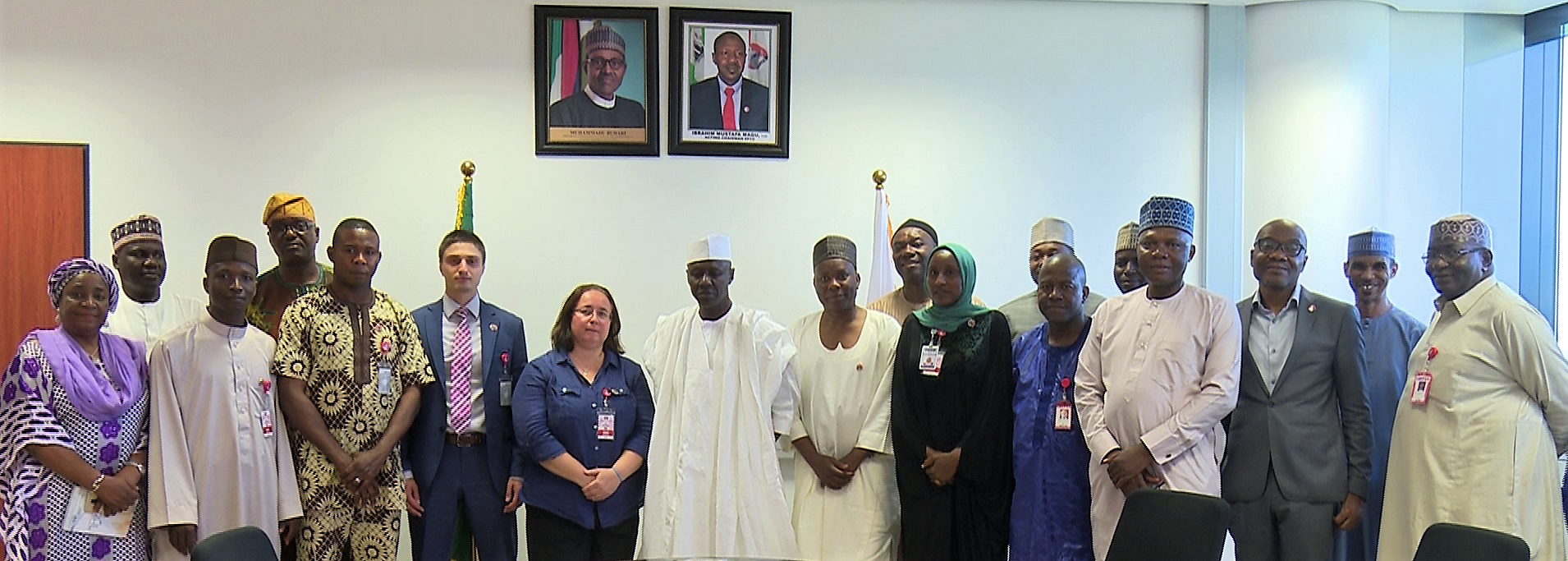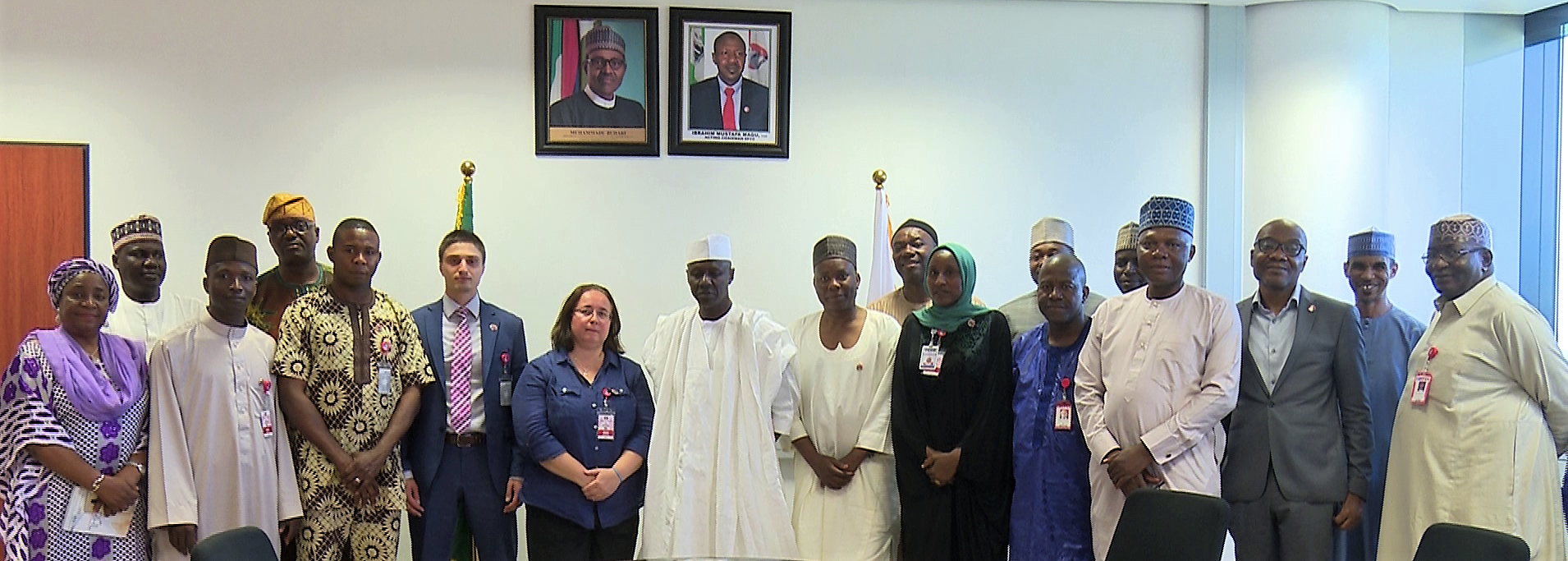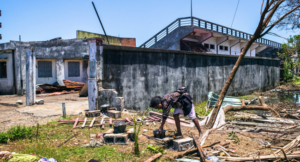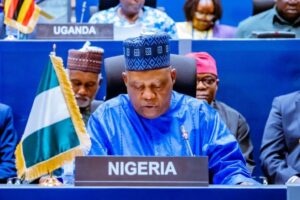
The Economic and Financial Crimes Commission (EFCC) is to collaborate with the Interpol to promote maritime security through a special project, tagged “Project AGWE.”
The project which will involve Nigeria, Ivory Coast, Togo, Ghana and Benin is aimed at ridding Nigeria and the other countries involved of economic sabotage in the maritime environment.
The disclosure was made on Friday, October 11, 2019 at the EFCC headquarter by the acting Chairman of the Commission, Ibrahim Magu, alongside Anastasia Kirillas, Interpol’s Analyst and leader of Interpol’s delegation, that came on a working visit to the Commission.
According to Kirillas, the essence of “Project AGWE” is for the designated countries to work together and encourage cooperation and broader intelligence sharing between law enforcement agencies across national borders.
Apart from assisting the EFCC in investigation and capacity building, Kirillas said the initiative will focus on maritime security in the designated countries and the strengthening of the capacities of law enforcement agencies in the West African sub-region. She praised the EFCC for its effective collaboration with the Nigerian Navy through joint operations.
The project, which Kirillas disclosed is sponsored by the United States Department of State will further strengthen West African regional capabilities in maritime security, through the exploitation of evidence and intelligence in the region, and building stronger relationship in the light of the expanding criminal networks within the region’s maritime environment.
Kirillas further assured that the collaboration will lead to improved capacity building, mentoring and the equipping of law enforcement agencies in the designated countries with tools to preserve crime scenes, and collection and exploitation of evidences.
Magu in his response observed the need for improved regional and international cooperation between Nigeria and other countries in terms of Intel sharing and gathering, noting that information was key in carrying out criminal investigations.
The EFCC boss added that a seamless flow of information among regional and international law enforcement agencies was needed to confront the expanding frontiers of economic crimes.
While expressing his deep appreciation of Interpol’s assistance to the Commission, he noted that cooperation between the Commission and Interpol has been beneficial to both parties.
Through such cooperation, the Commission was able to nab a suspect in a case of money laundering to the tune of €650,000. As a result of the arrest, the EFCC, was also able to secure an interim forfeiture of several properties of the suspect to the federal government, while presently prosecuting him at a Federal High Court in Uyo, the Akwa Ibom State.
Other members of the Interpol delegates include: Borislav Gizdavkov, an Interpol Analyst and Mohammed Abubakar, Administration Officer, Interpol National Office.








